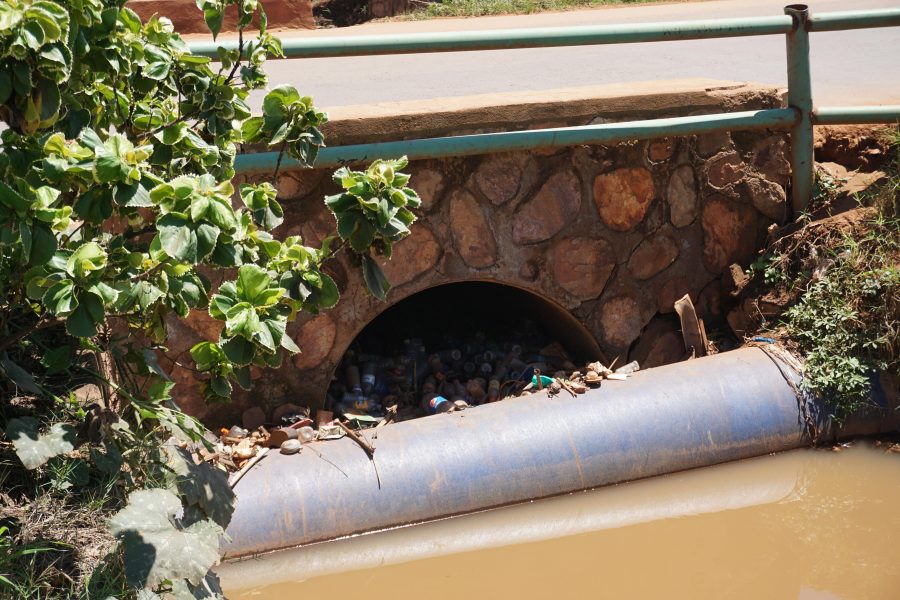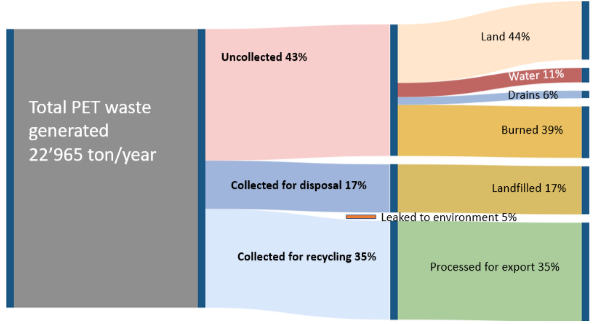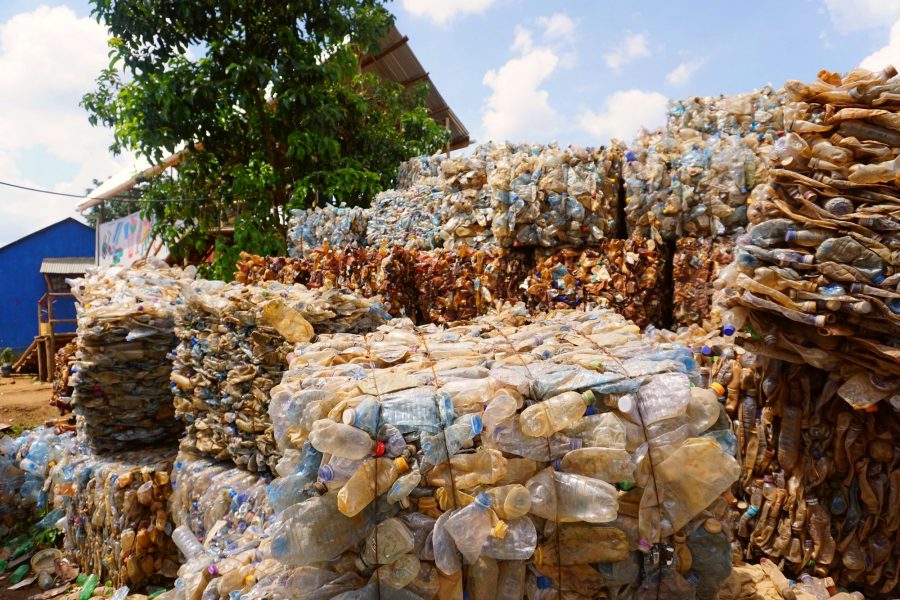Exploring PET plastic waste flows in Greater Kampala
A baseline study conducted under the GKMA PET Plastic Recycling Partnership
Polyethylene terephthalate (PET) plastic pollution is on the rise in the Greater Kampala Metropolitan Area (GKMA), Uganda’s most populated area. GKMA has experienced rapid urbanisation and population growth, as well as fast economic development, over the last 35 years. As one consequence of this development, PET is used in increasing quantities, largely in packaging of food and beverages.
This generates a significant amount of plastic waste and pollution in Greater Kampala and environs. Poor consumer behaviour such as littering and the creation of illegal dumpsites further accelerate pollution. This results not only in increasing amounts of PET plastic in the environment, but has also negative impacts like degradation of landscapes and blockage of urban canals and rivers. Increased risk of flooding and the emergence of waterborne diseases in stagnant waters are ultimate consequences.

Copyright: NatuReS Uganda
Although PET plastic pollution in GKMA being a very visible problem, it has previously never been quantified. The exact amount of PET plastic waste generated, collected, recycled, disposed in landfills, and leaked into the environment in GKMA has so far not been examined. However, such information is crucial for better planning and management of PET plastic waste.
To close this knowledge gap, the GKMA PET plastic waste recycling partnership conducted a baseline study on PET plastic waste flows in GKMA. The study identifies key stakeholders in the PET recycling value chain and compiles the relevant policies and legislations that affect plastic waste management in GKMA. Furthermore, it highlights the main challenges and opportunities for the management of PET waste in GKMA. The findings helped the partners to make informed decisions on priority intervention areas under the partnership. They also suggested practical mechanisms to improve management of this waste stream across the PET plastics recycling value chain.
Key findings on the PET waste flow
- 8.6 million pieces of pre-form PET bottles are imported into Uganda per day, of which 40% (3.4 million pieces) are commercialized in GKMA every day. This equals an amount of 62.9 tons/day.
- 57% of the PET plastic waste this generates is collected.
- Out of this, 17% ends up at gazetted disposal site(s),
- 35% is transported to recovery facilities, where it is processed for exportation, while
- 5% is leaked during collection and transportation services.
- 43% of all PET waste is NOT collected. This corresponds to 9.948 tons of uncollected plastic per year. This faction may end up in drains, land and water bodies.

The informal sector plays a crucial role in recovering PET materials for recycling. In fact, informal waste collectors recover all the PET waste, of which 57% is delivered to formal recyclers, who in turn process it as preparation for exportation.
There is only limited capacity to make new products from PET waste either within Uganda or neighbouring countries in East Africa. Therefore, once the formal recyclers process the PET waste into small flakes, they are packaged and exported to various countries, among which the US, India and Indonesia, for further processing.

Copyright: NatuReS Uganda
Every month, up to 660 tons of flakes PET waste, worth USD 232.654 (USD 2.8 million per year), are exported from GKMA to the international market. This number underlines the importance of the recycling sector for the economy in GKMA and the potential it could unfold if further processing and up-cycling was to be established in the country
Follow us on Twitter and do not miss out on any of our activities!